From the JAYwalk
Student scientists learn, grow during summer research program
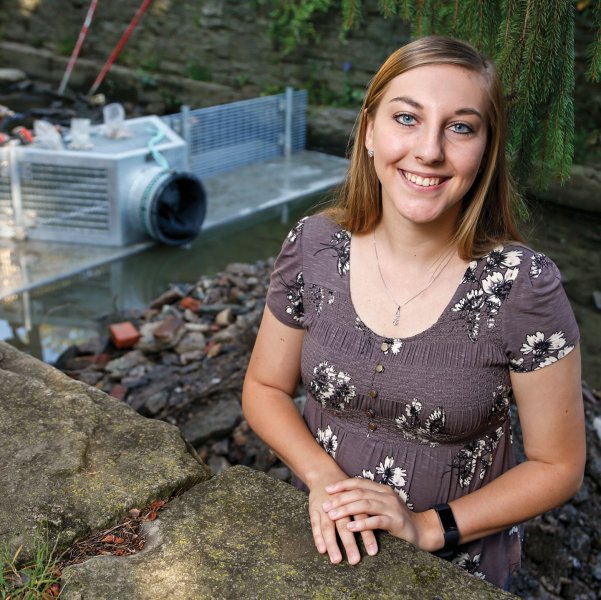
Student project offers net benefits
Combining her classroom knowledge, internship experience at a public utilties department, and her research skills from the Summer Science Research Program, Brianna Graber ’20 used Theory-to- Practice Grant funds to design and install a storm drain net in the Delaware Run, which flows through campus and into the Olentangy River. This net, one of the first of its kind in the nation, will prevent both trash and organic materials from polluting the river. A zoology major and Spanish minor, Graber chose this project for her OWU Geography 360 class because she “wanted to do something big.” Part of the project involves monitoring the health of the Delaware Run. The project will provide data that has not previously been a focus of research.
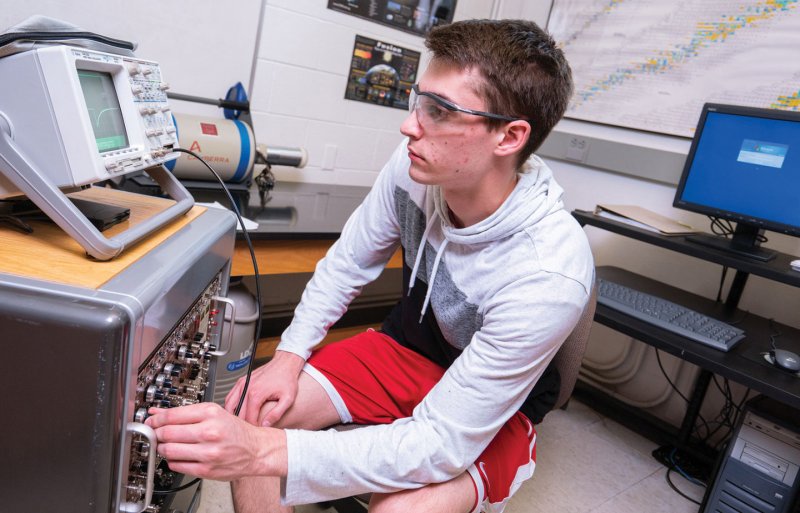 Accelerating arsenic atoms
Accelerating arsenic atoms
Colin Hawes ’20 worked with physics and astronomy professor Robert Haring-Kaye to investigate the orbitals of arsenic atoms. The most memorable part of the experience? “Operating the particle accelerator” at Florida State University, says Hawes.
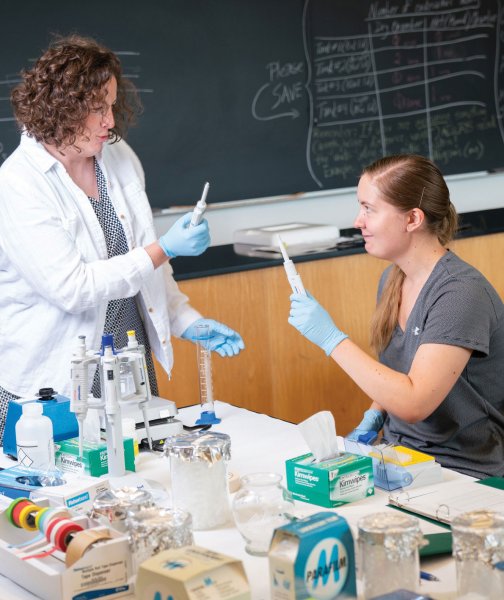
Collaborative learning
Collaborating with faculty provides plenty of opportunities to strengthen bonds between professors and students. Zoology professor Shala Hankison ’95 (left) and Jennell Betts ’20 (right) studied paternity and mating behaviors in the sailfin molly.
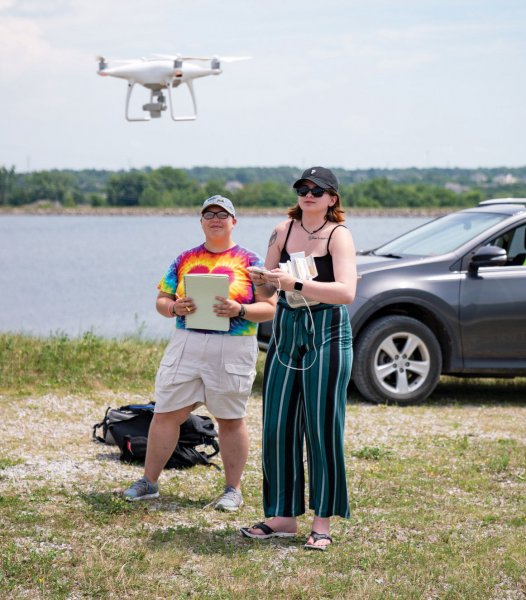
Flying drones in Delaware
Under geography professor Nathan Rowley’s guidance and in conjunction with the City of Delaware, Kait Aromy ’20 (left) and Aliyah Hannig ’21 (right) used drones to monitor DelCo reservoirs for algal blooms. “The most memorable part was learning how to fly the drone for the first time,” says Hannig.
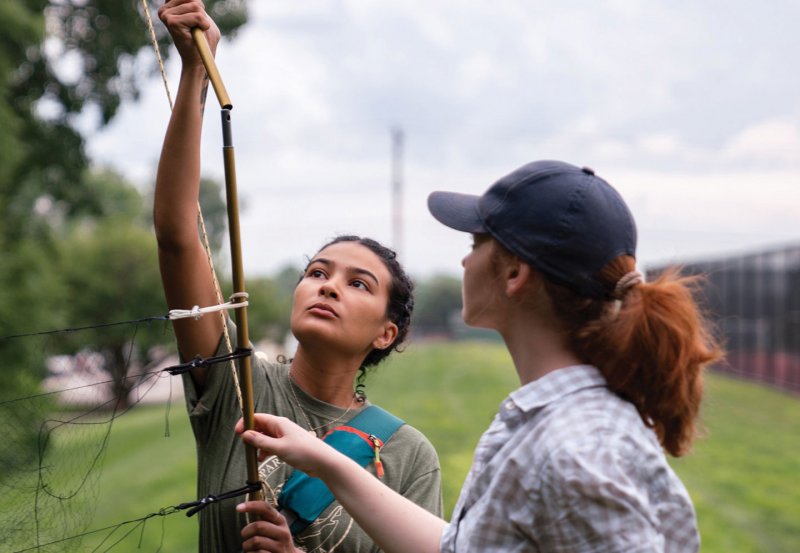
Watching wren behavior
Engaging in a combination of field work and lab work, Abbigail Turner ’20 (left), Moira Meehan ’20 (right), and zoology professor Dustin Reichard researched whether mate switching is an adaptive behavior in house wrens.

Lunch & learn
Shannon Agler ’20 (front) and Logan Rice ’20 (back) worked with zoology professor Danielle Hamill on the project, “Characterizing Rhabditid Nematodes.” Rice particularly enjoyed the weekly lunch meetings where he could “present on our own research and listen to the other labs present on the research that they are doing.”
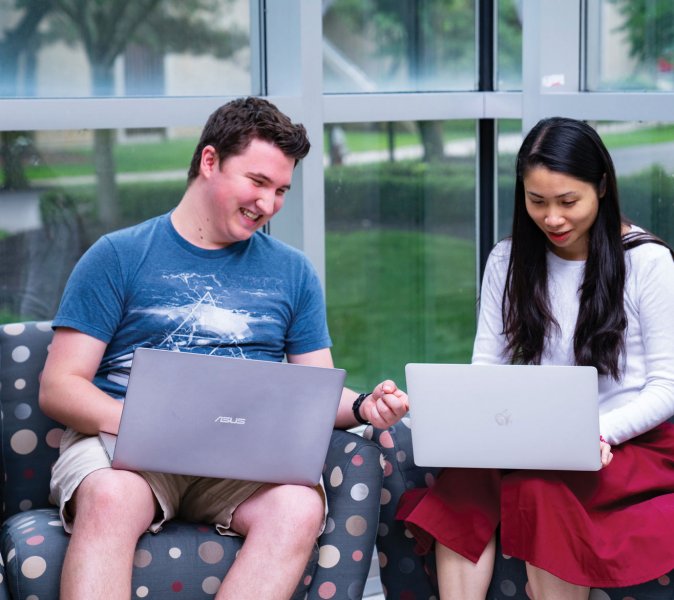
Gaming and the mind
Bradley Orzolek ’20 (left), Hien Mai ’22 (right), and psychology professor Kira Bailey spent their summer gaming to discover how video games can improve cognition and brain function. Orzolek enjoyed working with the group to design their own game with “a whole story, unique mechanics, and great replayability.”
